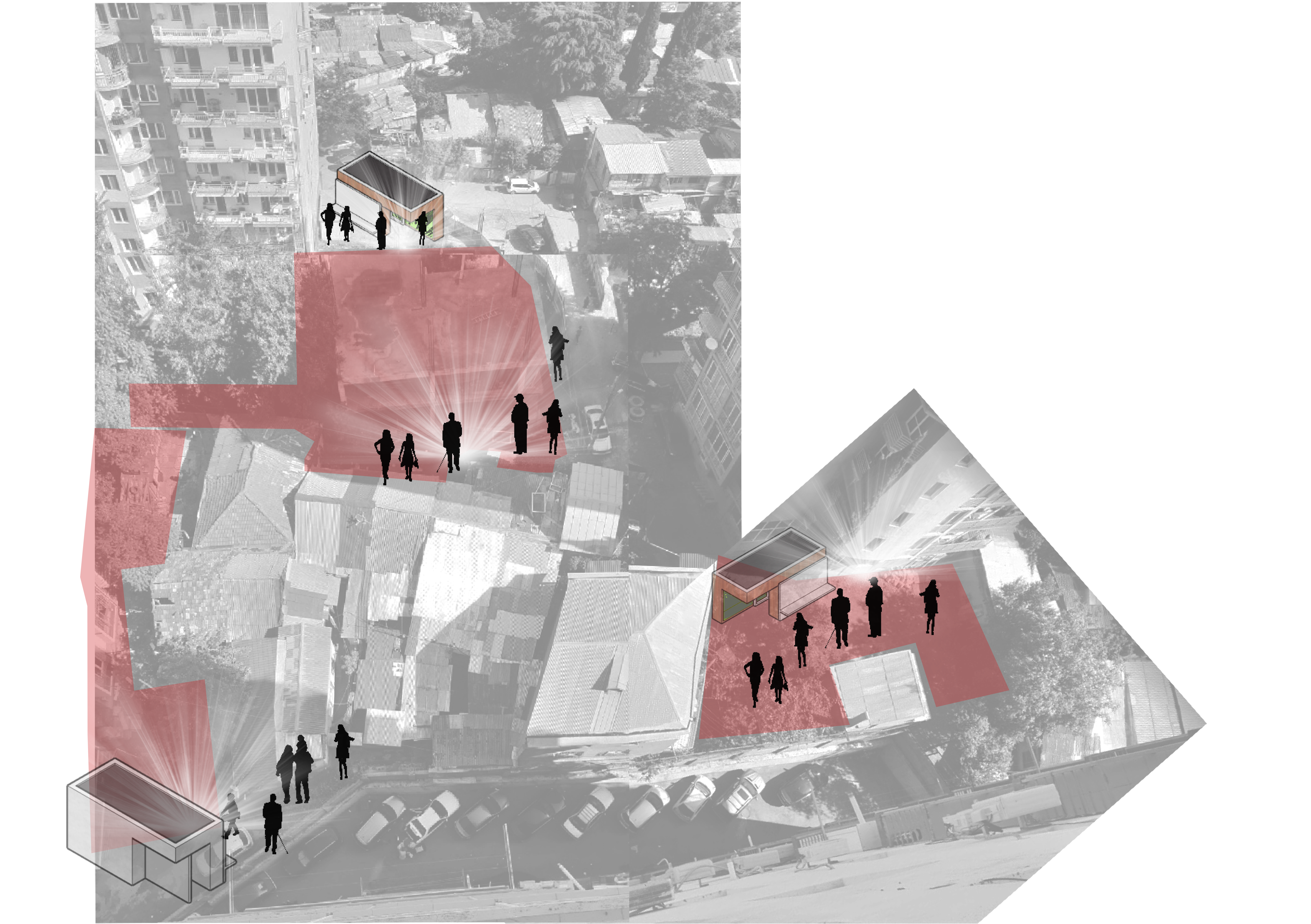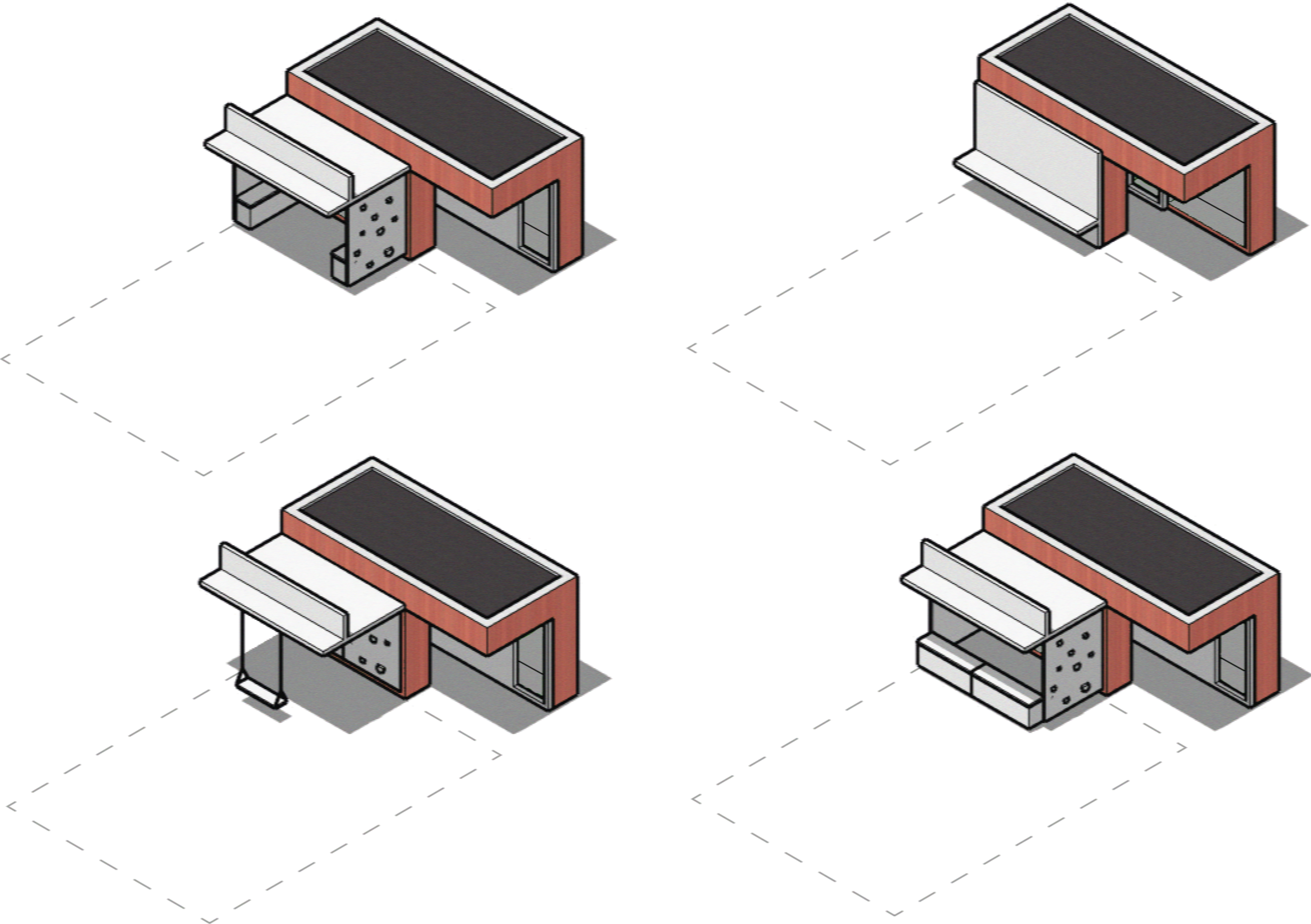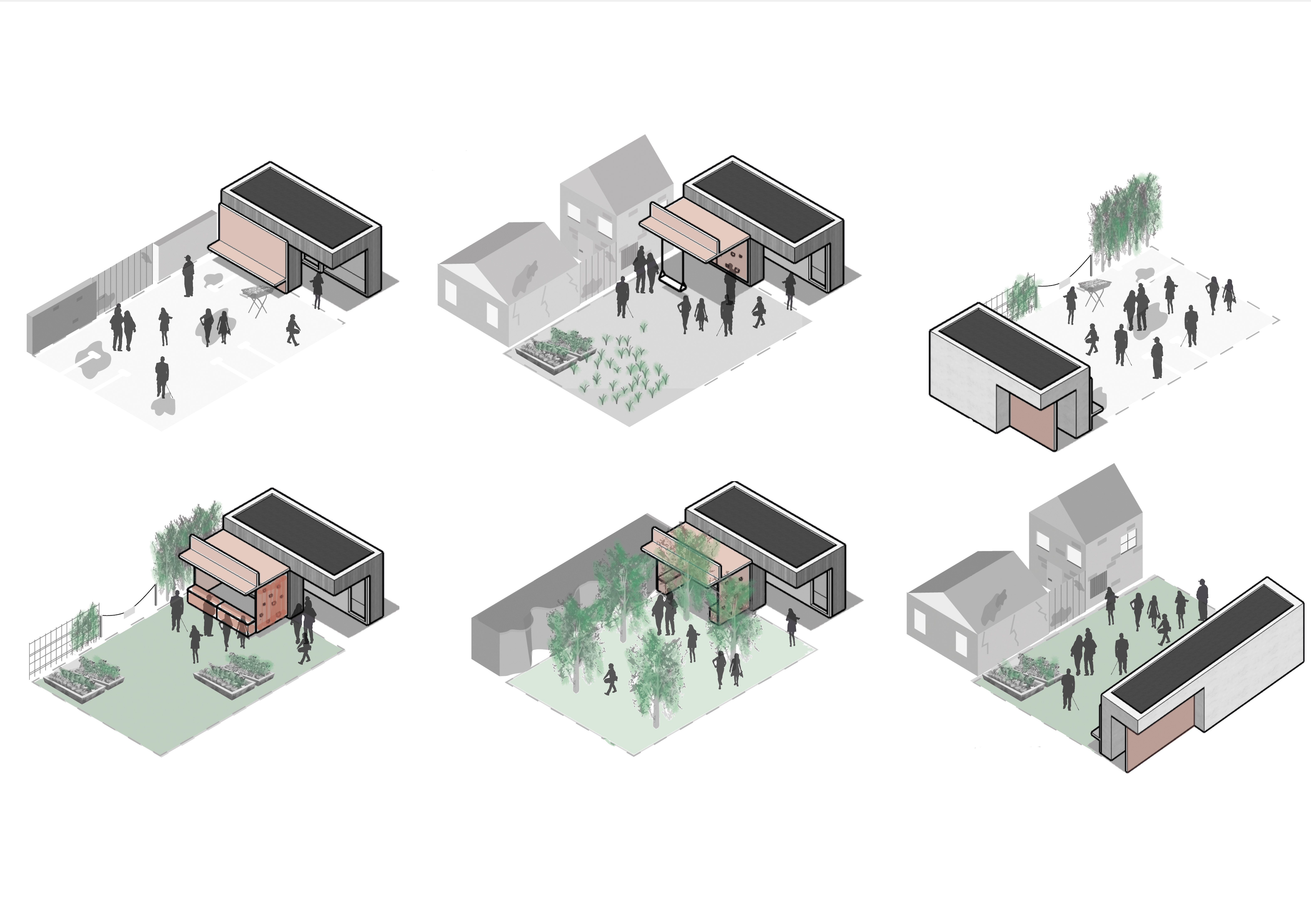



Regression/Progression
Sander van Rijn
Academy City in Tbilisi undergoes a slow transition from informal low-rise to formalized high-rise. This formalization brings progression, but also regression. Small spaces surrounding the new buildings and adjacent to the low rise remain functionless. These so-called non-spaces reflect the degradation of an already unstable built environment and an interruption in social cohesion. Therefore, the common is the inability to find affordances in the public space on a social and structural level.
By activating non-spaces, you create a place for re-integration of social relations. Activation however, does not occur naturally and users should therefore be made aware of and related to the non-space.
The residents place great value on security with every bit of land claimed through a gate or a wall, leaving an almost isolated public space without any public interest. The intervention respects this and contains a non-physical transition between the public space and the non-space by using light/darkness as a leading motive for this transition.
Academy City is used 24/7. Therefore, the intervention is always functional. It can be transformed to facilitate four daily routines to offer some basic activators and is materialized vandal-proof. The non-space remains untouched, because of the wide variety in site- and boundary conditions, any interference might imply a forced programme instead of activating the people to create a common place.
The generic design makes it an object people can identify with and relate to from the street, but within the secluded non-space it has its fullest potential in activating and realizing its user’s needs. The intervention applied in Academy City will activate the non-spaces and transform it to a place of gathering, sports, recreation, supra, markets, etcetera. Re-integrating social cohesion in a continuously changing Academy City.

